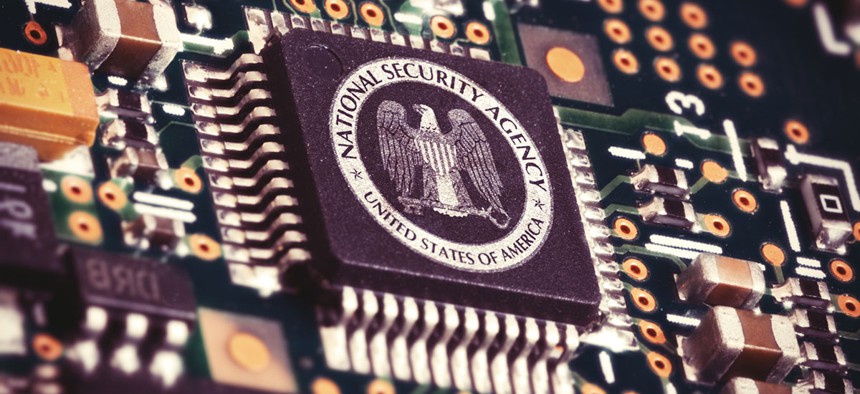
Carsten Reisinger / Shutterstock.com
Federal Court Rules NSA Spying Illegal
The program “exceeds the scope of what Congress has authorized," a judge ruled Thursday.
A federal appeals court ruled on Thursday that the National Security Agency's bulk collection of U.S. phone records is illegal, dealing a startling blow to the program just as Congress is weighing reforms to surveillance authorities.
A three-judge panel of the 2nd Circuit U.S. Court of Appeals deemed that dragnet collection of American call data does not constitute information relevant to terrorism investigations under Section 215 of the Patriot Act.
The controversial program, exposed publicly nearly two years ago by Edward Snowden, "exceeds the scope of what Congress has authorized," Judge Gerard Lynch wrote in his decision.
Two other appeals courts have in recent months heard arguments considering the legality of the NSA bulk telephone program, but neither has issued a ruling yet. Any split among the courts will likely prompt a Supreme Court review.
The NSA's domestic surveillance of phone metadata—the numbers, time stamps and duration of calls but not their content—came under intense scrutiny following the program's disclosure by Snowden, a former NSA contractor, in June 2013.
The decision comes as Congress is weighing legislation that would reform several aspects of the NSA's surveillance regime, including an effective end to the bulk data program. That legislation, the USA Freedom Act, would instead allow the government to ask telecom companies for phone records on an as-needed basis after obtaining judicial approval for each query.
Lynch did not order an immediate cessation of the surveillance program. Instead, Lynch noted the congressional debate will likely resolve the issue one way or another. Congress must act in some fashion before June 1, when Section 215 is due to sunset, or let the authority—which the NSA uses to justify the program—expire completely.
"If Congress decides to institute a substantially modified program, the constitutional issues will certainly differ considerably from those currently raised," Lynch wrote. "If Congress fails to reauthorize [Section 215] itself, or reenacts [Section 215] without expanding it to authorize the telephone metadata program, there will be no need for prospective relief, since the program will end, and once again there will be time to address what if any relief is required in terms of the data already acquired by the government."
Lynch did not comment specifically on the privacy implications of the NSA's program because he ruled it was never appropriately authorized under law.
(Image via Carsten Reisinger / Shutterstock.com )







